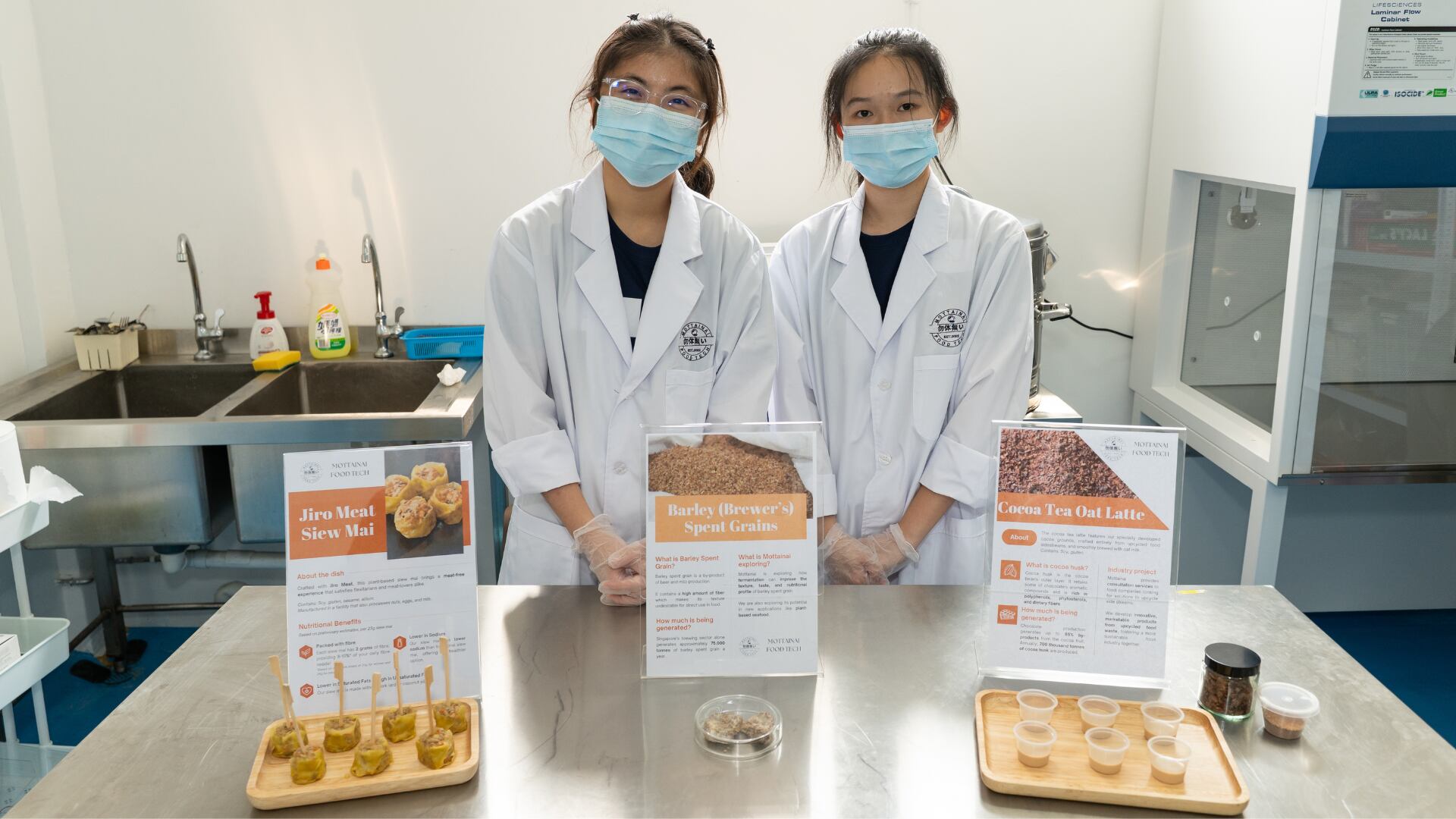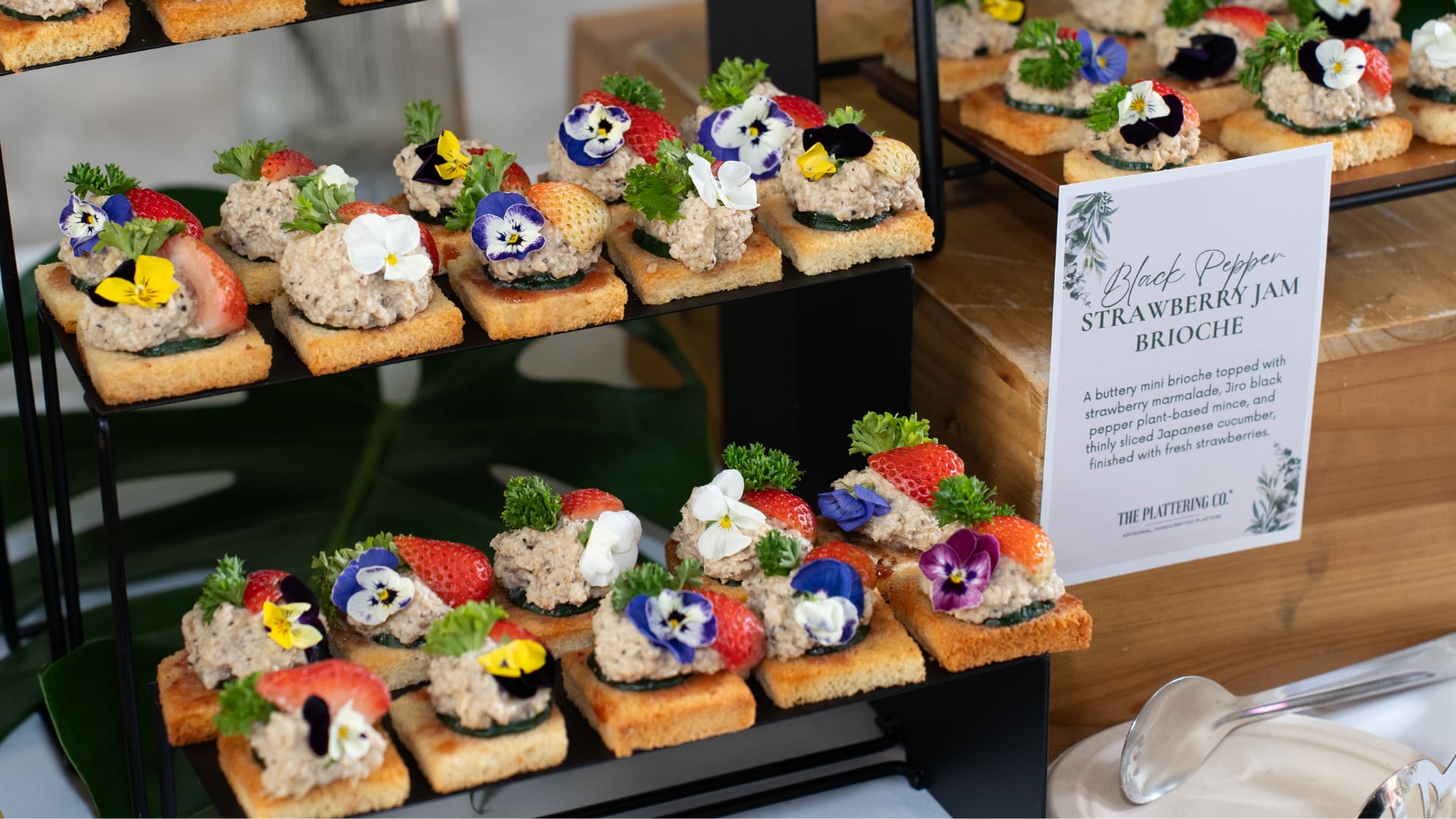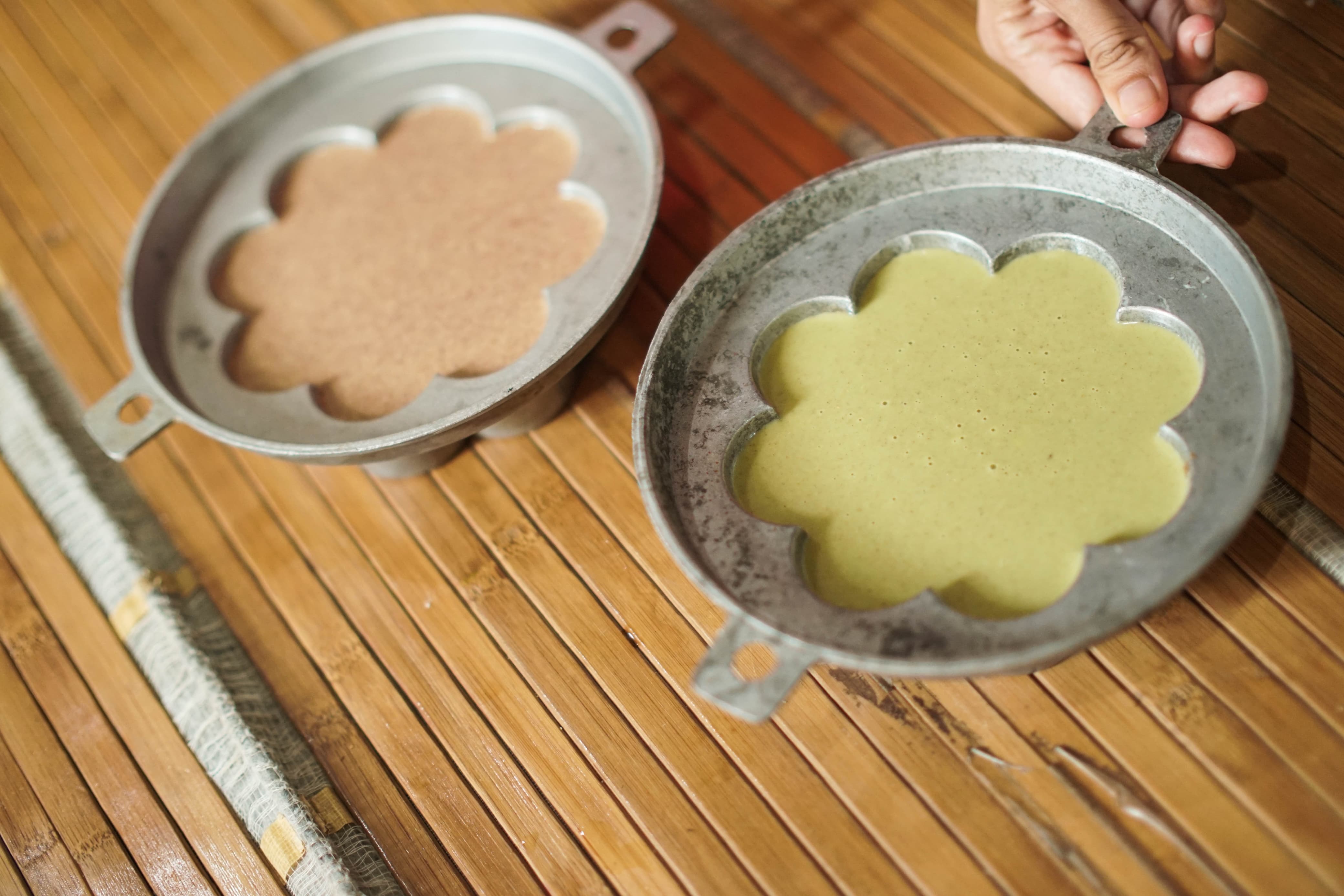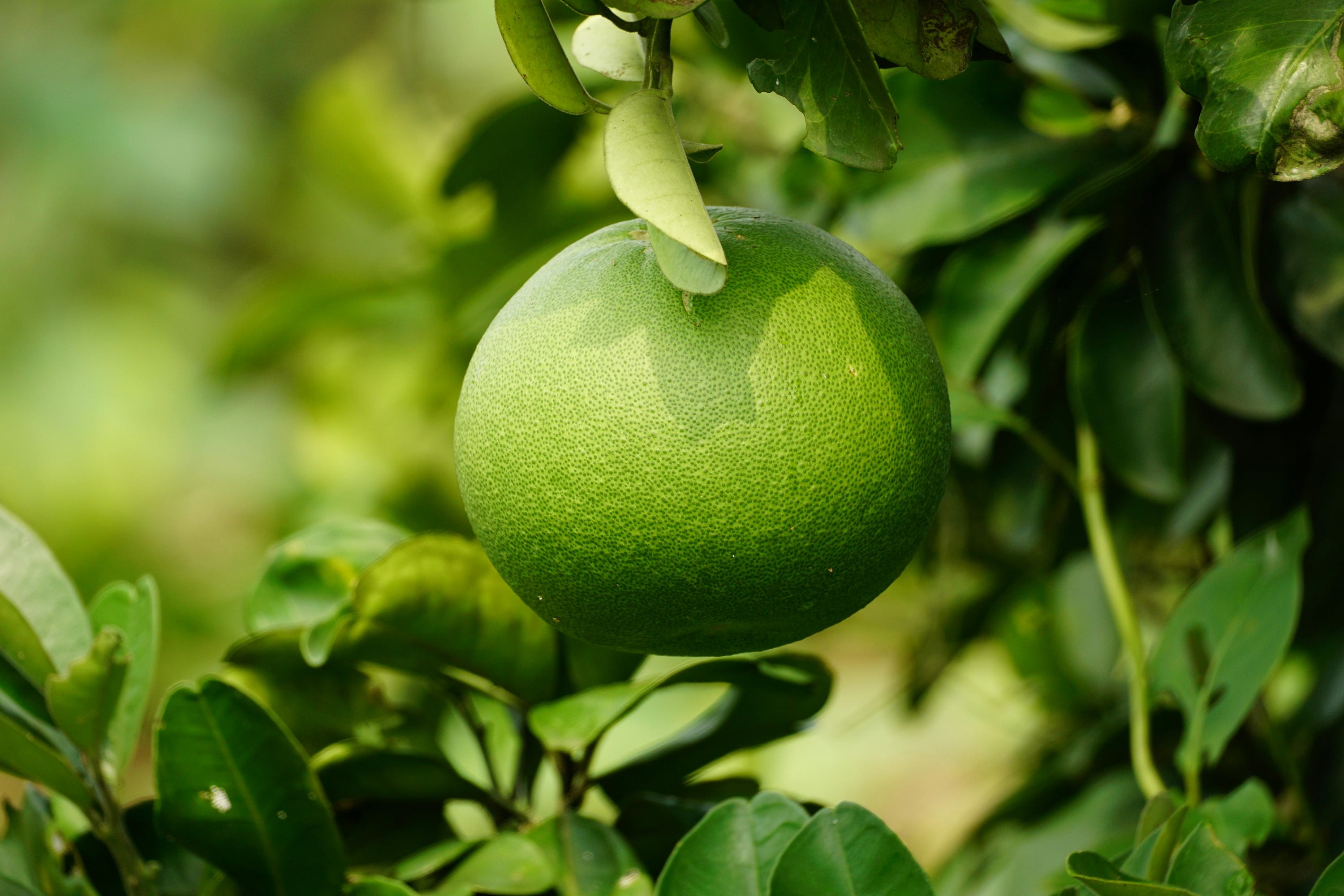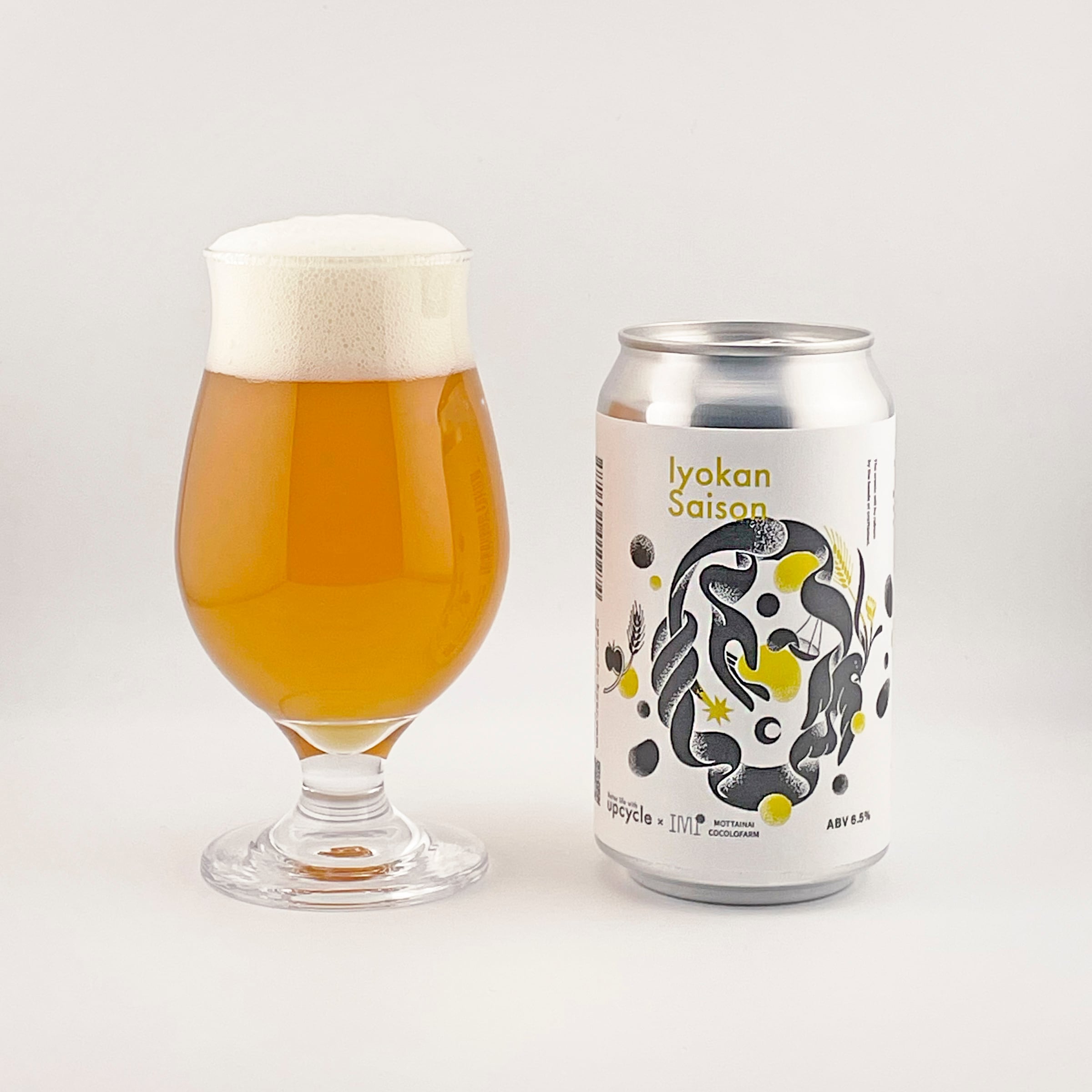Singapore-based Mottainai addresses food security and sustainability through a two-pronged strategy – upcycling by-products from food production and turning them into viable alternative food sources.
Having successfully launched okara-based Jiro Meat, Mottainai has now opened a pilot facility capable of upcycling up to 100 tonnes of food manufacturing by-products annually, tapping on its versatile technology to valorise other material such as barley spent grain and cocoa bean shells for snacks and beverages.
“As we were only at lab scale previously – maximum of up to 10kg capacity – we were restricted by our output and therefore were not able to formalise meaningful long term partnerships or sales – in the past year, these were mostly ad-hoc and to support events and R&D with interested parties.
“With the opening of our pilot facility and larger output capacity, we have begun more concrete discussions with interested parties,” said co-founder Daryl Pek.
He emphasised that upcycled food can be nutritional, delicious, and affordable – providing more value than just environmental friendliness, which is crucial for commercial success.
“Sustainability alone is not enough. Our mission goes on beyond any one product, beyond okara. We’re actively exploring and co-developing solutions using other side streams like barley spent grain, sesame mill, moromi (a byproduct of the fermentation process used in making Japanese foods like soy sauce, miso, and sake),” Pek shared.
These solutions will prioritise taste, nutrition, and affordability – key factors to ensure widespread acceptance of food valorisation as a commercially viable solution.
What is okara?
Okara is soybean pulp – a by-product from making soy milk and tofu.
Research shows that agricultural waste is rising across the globe. Valorising okara – a rich source of protein and fibre – can help lower carbon footprints and improve food security.
Mottainai estimates Singapore generates 10,000 tonnes of okara waste annually.
Canadian researchers have estimated that 14 million tonnes were produced globally in 2019, largely from Asian countries with high soy consumption such as China, Japan, and India.
Taste, nutrition, cost, and versatility
According to Pek, Jiro Meat is a good source of protein and dietary fibre, and retains texture and moisture even after cooking.
Furthermore, the okara-based meat retains texture and moisture well even after cooking. Pek explained that it is also affordable since the cost of okara is low.
“And unlike typical meat, Jiro Meat retains its texture and juiciness with less than 10% cooking loss,” said Pek. “Importantly, it’s also priced to be accessible – on par with or even more affordable than real meat.”
The firm will not stop at okara-based meat – it has already commercialised products from other upcycling projects. This includes cocoa-flavoured beverages made from cocoa bean shells, developed with Janice Wong and Lemuel Chocolate, now available on the market.
Additionally, Mottainai also provides technical expertise to help start-ups turn side streams into commercially viable and healthier alternatives.
“Our technology is highly adaptable, and we pride ourselves on being a food technology company instead of one that is limited to just okara or plant-based meat,” Pek said.
During the pilot facility launch, Mottainai showcased a cocoa tea oat latte brewed from cocoa husks, along with an early-stage prototype using spent barley grain. The aim was to demonstrate the transferability of Mottainai’s expertise across different raw materials.
“Beyond okara, we are exploring other by-products such as Barley spent grains, spent coffee grounds, sesame pressed cake, cocoa bean shells, soy sauce pressed cake,” Pek added.
These familiar formats have strong potential in Asia-Pacific and could appeal to consumers globally.
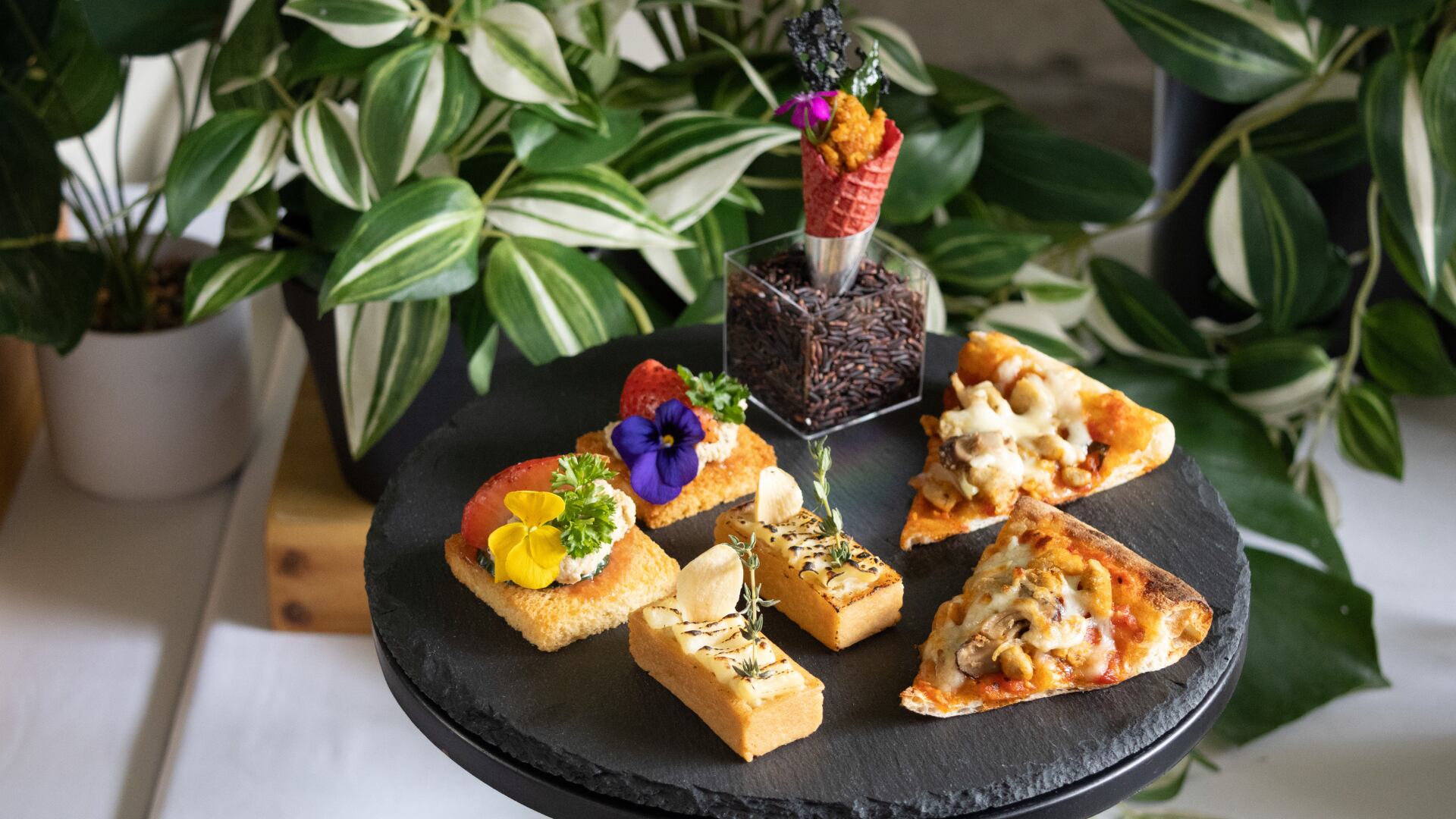
Tapping on the global need for valorisation
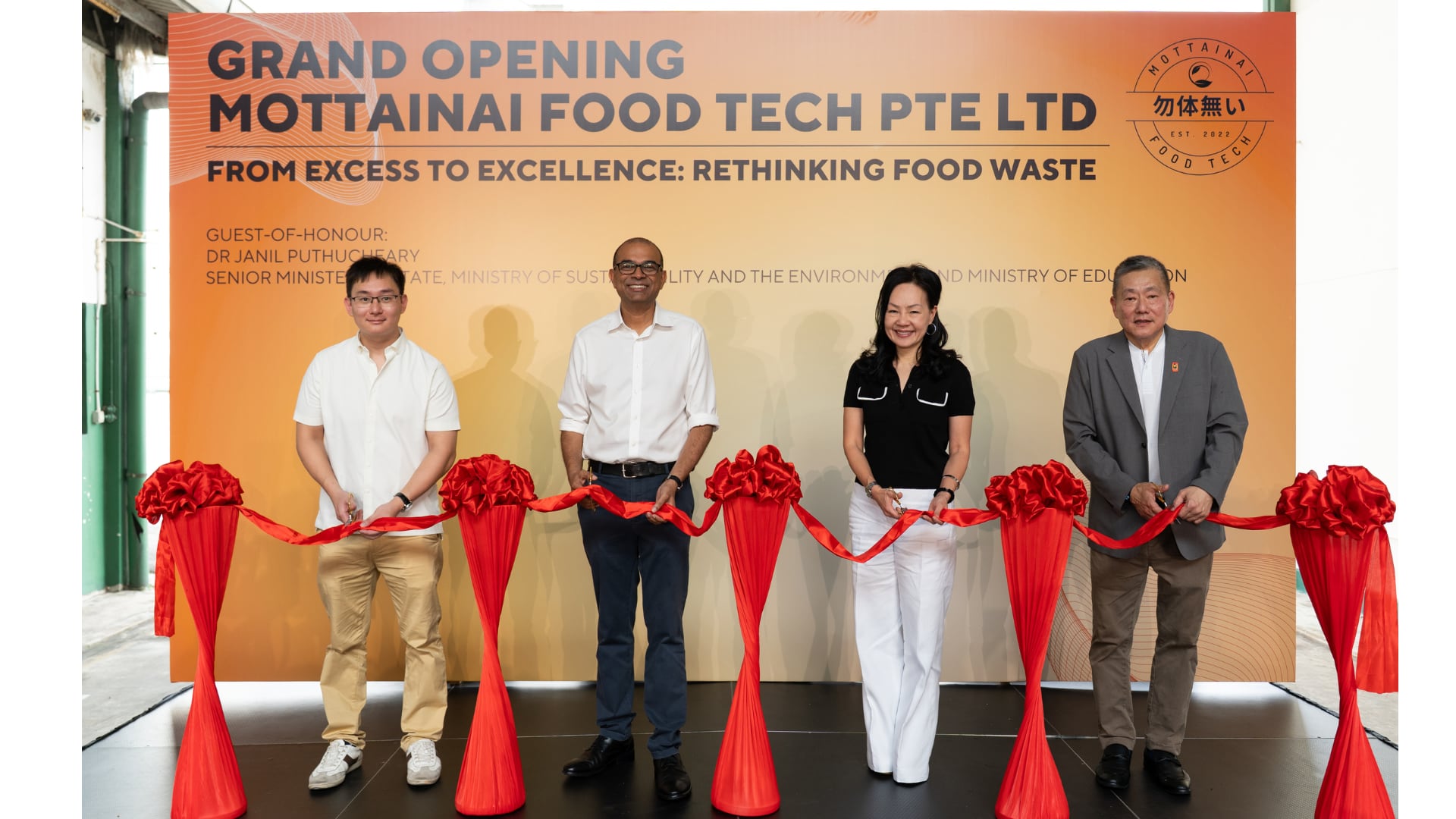
With mounting pressure for the global food industry to lower carbon footprint and improve food security, Mottainai has plans to expand its capabilities beyond Singapore.
“We plan to expand Jiro Meat beyond Singapore, as the local market alone isn’t large enough for the scale we envision. We’re targeting regions such as Europe, the USA, Taiwan, and the Middle East, as these are markets where adoption of plant-based alternatives is generally higher, and where some of our partners already operate,” said Pek.
“We’re working with them to bring end-products made with Jiro Meat to these regions, especially since plant-based items face fewer regulatory hurdles than conventional meat. Longer term, we also see potential in overseas joint ventures, tapping into the global okara supply to scale our upcycling technology internationally.”
